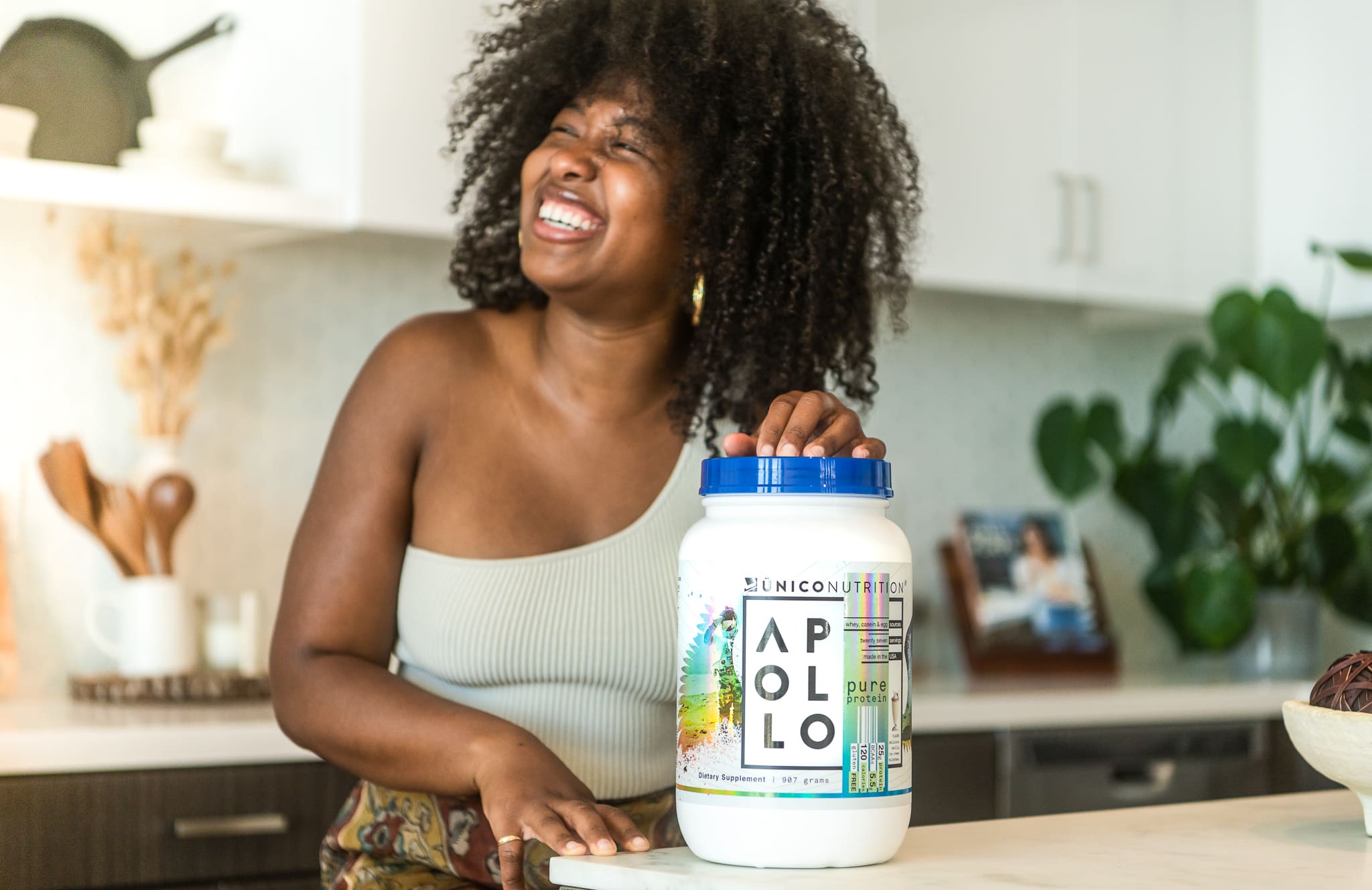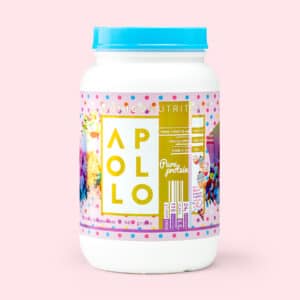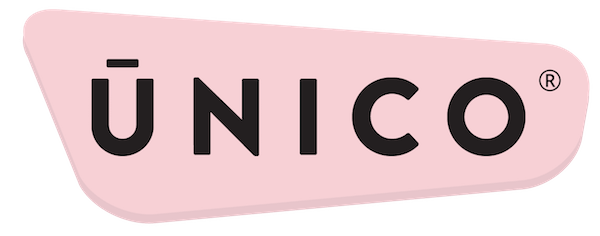Looking to add more lean protein into your diet, but unsure how to go about it? Not to worry, we’ve got your back. The truth is, there’s so much diet & nutritional advice out there that things can get confusing pretty quickly. In this post we’ll cover everything you need to know about lean protein to help you pick the right protein sources.

Whey Protein. Pea Protein. Animal Protein. Plant Protein.
Protein, protein, protein.
(And those are only four of hundreds of popular proteins that you hear about daily!)
With so many protein sources to choose from, how can you possibly know which is best for your diet and lifestyle?
Generally a good place to start for most people is to identify lean protein sources.
Why Focus on Lean Protein?
Protein is one of the three macronutrients (the others being carbohydrates and fats), and typically we try to get protein into our diet with as few of the other two macronutrients as possible.
In doing so, we can more carefully track our consumption of the other two nutrients, which is a good idea to keep healthy and fit.
Protein is also the hardest macronutrient to get enough of on a daily basis.
The reason why is a topic for a rainy day (and be on the lookout for an upcoming blog post about it, but for starters- protein is much more expensive than any other macronutrient to produce.
It’s lower margin, and corporations generally steer clear of it, in favor of fats and carbs.
It’s very difficult for most Americans to get a sufficient amount of protein per day.
Now.
That’s not to say that carbs, and fats don’t both have their place in our diets, because they most certainly do.
But when choosing proteins, the highest-quality choices are going to be lean proteins.
Lean protein will help us build muscle and lose fat most effectively, while helping to keep our hormones in balance.
More on the key benefits of lean protein in a bit.
If you’re not sure how to tell which protein sources are lean and which ones aren’t, we’re here to help you out.
We’ve put everything you need to know about lean protein into one helpful guide – consider us your lean protein gurus from here on out.
Let’s start with some basics.
What Is Lean Protein?
At first glance, ‘lean protein’ might sound like it is meant to represent any protein that has relatively low amounts of fat/carbs.
And while it can mean that, there is actually a formal definition for what constitutes lean protein.
Most people don’t actually know this, but…
Lean protein, according to our trusty elected officials (say that with whatever sarcastic tone pleases you) , is any protein that contains:
- less than 10 grams of total fat
- 4.5 grams or less of saturated fat
- and fewer than 95 milligrams of cholesterol
…per 3.5-ounce serving.
Wondering how much fat a protein source can contain and still qualify as “lean?”
The answer is roughly 2 to 3 grams per ounce.
For reference, the average marbled cut of beef contains quite a bit more fat than that.
Yes, that marbling tastes delicious, but unfortunately that steak is not the lean protein that we should target daily.
The good news is that there are are several kinds of lean meats that you can slap on the grill with peace of mind.
More on those later, along with some of our favorite plant-based lean proteins.
As you’ll see, one of the many benefits of choosing plant-based proteins is that they are generally low-fat, or entirely fat-free.
But more on that later.
Let’s get back to that steak…
Are Fattier Proteins Unhealthy?
The portrayal of an overweight American feasting on a ribeye certainly would paint the picture that the steak is responsible for our collective, well, obesity.
Let’s not sugarcoat it, right?
And while it’s true that indulging in red meat on a frequent basis would be a poor dietary decision, it is a misconception that all protein sources that are higher in fat are bad for you.
You see…while higher fat cuts of protein can send your calorie and fat intake through the roof if you’re not careful, not all of these foods are unhealthy per se.
Some sources of protein that are considered higher in fat, such as salmon and nut butter, are full of unsaturated, heart-healthy fats – while containing plenty of protein to boot.
Your body needs these heart-healthy fats to function, so it’s best not to ditch dietary fat entirely – just to focus on the right sources.
It’s also important to note that nut butters and salmon are in the very distinguished category of having the protein + healthy fat overlap.
So we call them out here in a positive way, but keep in mind that most high protein foods that are also higher in fat, are not going to be the best healthy choices.
Let’s dig into some of those tasty benefits of getting enough protein.
Why Do You Need Lean Protein?
Ever wonder why you hear so much about lean protein?
It’s because it’s important!
Before we talk about why lean protein is so important, let’s first explore the role of protein in a healthy diet.
As you recall from earlier, protein is one of three macronutrients that you need to survive and thrive.
The other two macronutrients are carbohydrates and fat.
One of the primary functions of protein is to provide you with the fuel you need to build muscle and recover from a hard workout.
Amino acids, which are the building blocks of protein, are used by the muscles in order to rebuild and repair.
That’s why you might want to drink a protein shake when you’re finished lifting weights in the gym.
While you can technically get the amino acids you need from any type of protein, lean protein offers some extra advantages worth knowing about:
- Lean protein sources contain minimal saturated fat – saturated fat is linked to chronic health conditions like heart disease, obesity, and diabetes.
- Because lean protein is lower in calories than other sources of protein, you’re less likely to overeat and go over your daily requirements for total fat and calories.
- Lean protein sources can be animal-based or plant-based. When you get your lean protein from plants, it also contains fiber, which helps promote healthy digestion. Animal-based lean protein, on the other hand, doesn’t contain fiber.
On top of all of that, protein can also be instrumental in helping you lose weight!
More on that in the next section below.
Now that you know why protein is so important, let’s zero in on lean protein’s benefits.
What Are the Benefits of Lean Protein?
A solid source of lean protein has quite a few different benefits that set it apart from other protein sources.
Let’s take a look at some of our favorites:
Promotes Weight Loss
Lean protein is one of the best-kept secrets in the weight loss world.
When you’re trying to lose weight, one of the biggest challenges you face is feeling hungry as you lower your calorie intake.
This aspect of the weight loss process is pretty much unavoidable – but it doesn’t have to be painful.
Adding lean protein sources to your diet – white meat, skinless chicken breast, lower-fat fish like flounder, and more – can help you feel full for longer between meals while still cutting back on your overall caloric intake.
As an added bonus, these foods may help support a healthy metabolism.
Let’s take a look at the research to back up lean protein’s impact on weight loss.
Studies show that eating some lean protein with your meals or snacks helps promote satiety, which can reduce the number of calories that you eat throughout the day.
And you already know that protein promotes the development of lean muscle mass, which boosts your metabolism when at rest, resulting in more calories burned throughout the day.
In fact there are five ways that protein helps you lose weight, all of which provide undeniable benefits to any diet & weight loss regimen.
1. Helps Build Muscle
Your body uses amino acids – the building blocks of every type of protein – to build and repair lean muscle mass.
You’ve probably heard of BCAA, but EAA is the new kid on the block.
Now there are some differences when it comes to EAA vs BCAA that you should know about..
Just know that there are 13 of these essential amino acids, and you must get them from dietary sources of protein because your body can’t create them on its own.
Sources of protein that contain all 13 essential amino acids are referred to as “complete” proteins, and these foods are essential when you’re trying to build lean muscle mass.
2. Supports Heart Health
Lean protein sources have the added benefit of supporting heart health.
A study conducted in 2005 found that eating a diet higher in lean protein may reduce the risk of certain heart disorders and concerns.
Participants in the study who shifted just 10% of their calories from carbohydrates to protein experienced a reduction in cardiovascular risks of about 21%.
During the study, these participants also experienced lower levels of cholesterol and lower blood pressure, both of which are known risk factors for heart conditions.
What was perhaps the most surprising about the results of the study was that the higher protein diet was found to be even more beneficial for heart health than a normal healthy diet, which includes higher consumption of carbohydrates.
Some lean protein sources, like fish such as haddock and cod, are rich in omega-3 fatty acids that support a healthy heart.
3. Maintains Body Function
Your body needs a sufficient amount of protein in order to function properly and conduct chemical reactions efficiently.
Lean protein can help keep the body running at its best and provides needed fuel for processes like energy production, muscle contraction, digestion, and blood clotting.
The body also uses certain amino acids as hormones, which are chemical messengers that carry messages between the organs, cells, and tissues in the body.
Lean proteins are rich in key vitamins and minerals like vitamin B12, B6, thiamin, phosphorous, potassium, and magnesium, all of which help the body function.
How Much Lean Protein Do You Need?
The USDA recommends that the average adult gets 0.4 to 0.5 grams of protein per pound of body weight (or 0.8 grams per kilogram of body weight).
However, your specific protein needs are correlated with your levels of physical activity, so people who exercise regularly typically need more of this essential nutrient.
While increased protein intake varies, people who exercise more than 12 hours per week tend to need around 0.8 grams per pound of body weight (which is 1.2 to 2.0 grams per kilogram of body weight).
Not sure exactly how much protein is right for you?
Read our post on how much protein per day you need, and then experiment with lean protein intake to find out how your body feels and functions its best.
What Are Some Examples of Lean Protein?
There are plenty of great-tasting sources of lean protein out there.
Below are just a few of our favorites.
Try getting a few servings of these foods on your plate each day to harness the muscle-building power of lean protein:
- Protein powder*
- Skinless chicken or turkey
- Beans and other legumes
- Tofu
- Low-fat dairy
- Lean cuts of beef (sirloin, top round)
- Lean cuts of pork (tenderloin)
- Soybeans
- Quinoa
How Can I Make My Protein Sources Leaner?
Choosing lean protein sources doesn’t necessarily mean that you need to revamp your entire grocery list.
There are plenty of ways to make your favorite protein sources leaner. Try any of the following methods:
- Aim to eat several servings of seafood per week
- Choose cuts of meat with “loin” or “round” in the name, such as tenderloin or top round, as these are leaner cuts of meat
- When buying ground beef, turkey, or chicken, look for labels that say at least “90 percent lean”
- Use less added fat while cooking by grilling, poaching, broiling, roasting, or steaming
- Remove the skin and trim excess fat from meat before cooking meals
The Bottom Line
Lean protein boasts a long list of benefits — promoting weight loss, building muscle mass, supporting heart health, and maintaining overall physical functioning. If you’re trying to lose weight or build muscle, foods in this category are some of your most valuable assets!
Sources:
2015-2020 Dietary Guidelines for Americans | U.S. Department of Agriculture
Protein | The Nutrition Source | Harvard TH Chan School of Public Health
- Holiday ‘Jingle Balls’ – A Festive Take on No-Bake Protein Balls - December 20, 2023
- Cryptic Cold Brew – A Must-Try for the Most Mischievous - October 31, 2023
- Does Protein Powder Make You Gain Weight? - October 4, 2022

